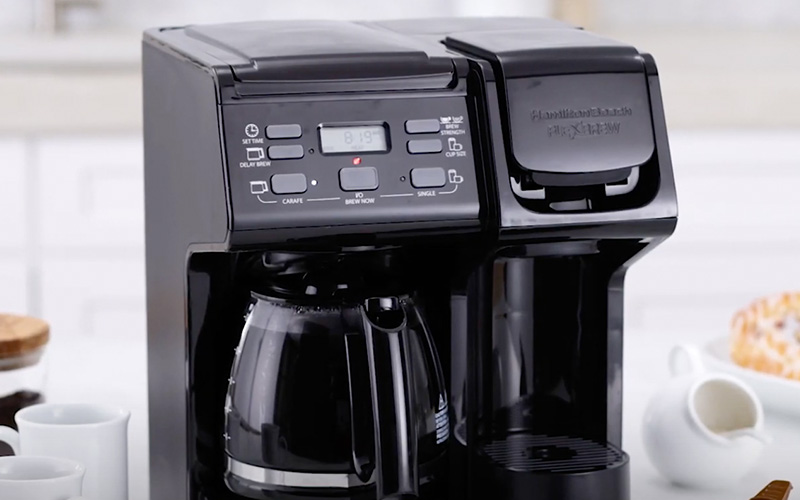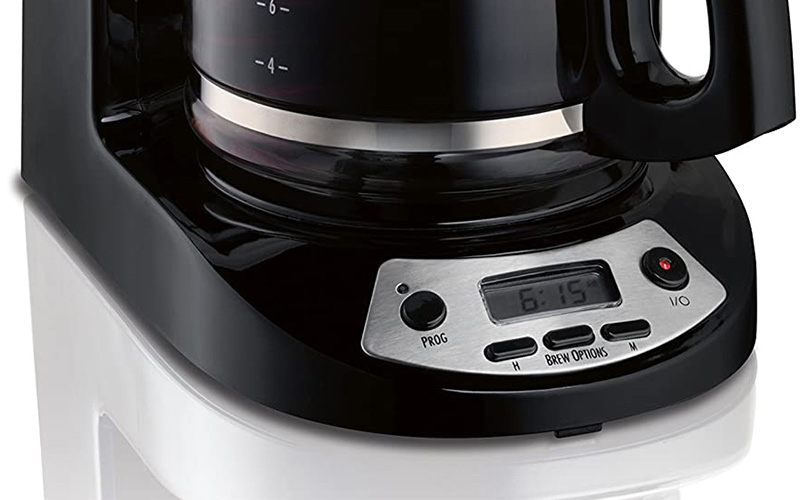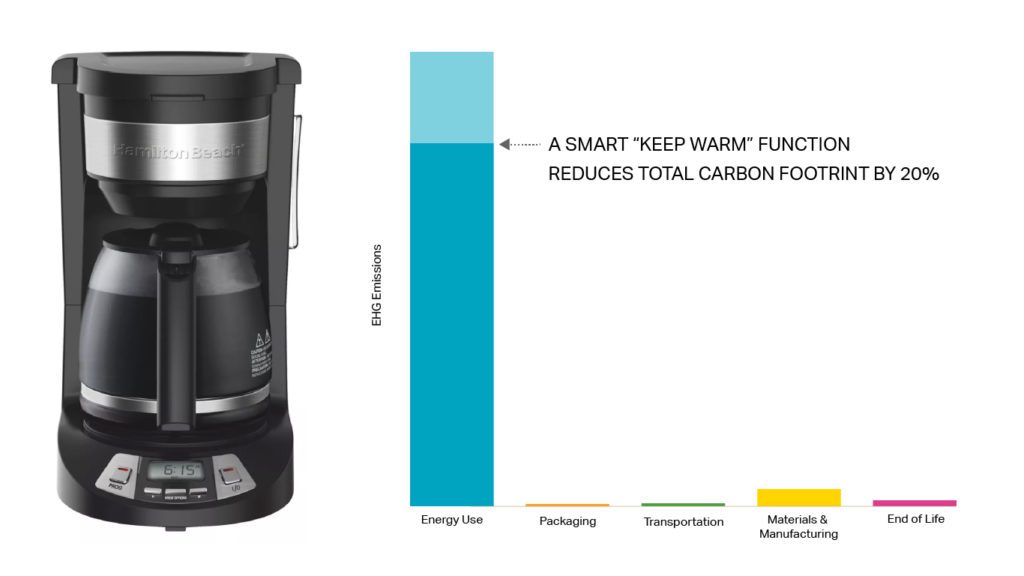Making kitchen appliances more sustainable
As one of the largest kitchen appliance distributors in the world, Hamilton Beach is owning the challenge of reducing its carbon impact and connecting with like-minded consumers.
This means focusing on sustainability; from design to engineering, and through the final journey to a customer’s home. As most know, a change like this can’t be taken lightly, and it can’t happen overnight. A thoughtful, deliberate approach is needed to create sustainable practices that, when implemented, provide immediate value both to organizations and customers alike.


In the summer of 2020, Hamilton Beach and Synapse began exploring how sustainable product development could be jump-started—and more broadly, how sustainable thinking could be integrated into product design—at Hamilton Beach.
The first step was to examine the environmental impact of several Hamilton Beach products. Synapse performed a proprietary version of Life Cycle Analysis (LCA) on each product using tools like SimaPro and GaBi. These LCAs served as the foundation for a series of workshops. Once complete, Synapse delivered a set of recommendations focusing on both product and organizational level opportunities for further investigation and implementation.
The first workshop focused on product-level ideas for sustainable design improvements and explored how each product was manufactured, shipped to, and used by customers. A key benefit of going through this exercise is learning about user behavior that can negatively impact a product’s overall carbon footprint. In this case, the coffee maker’s “keep warm” function used almost as much electricity as running through the brewing cycle. Updating this feature was a straightforward way to significantly reduce energy consumption—by 20% in this example.

The second workshop built on the first, in which a cross-functional team identified opportunities to reduce environmental impact across Hamilton Beach departments, ultimately determining pathways to integrate more sustainable approaches into specific business objectives. A key recommendation coming out of the whole company view was the identification of steps needed to move towards a more circular product model.
Evaluating and reducing the carbon impact a product has is a valuable exercise for any organization, especially in the competitive kitchen appliance market. We are proud to have worked with Hamilton Beach on this challenge and are looking forward to seeing this talented team bring new, more environmentally responsible products to market.